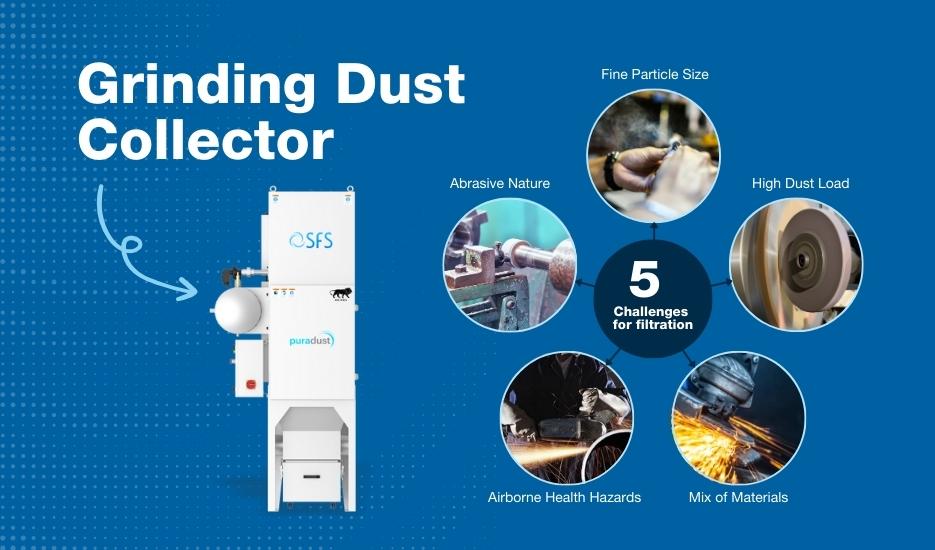The grinding process stands as a cornerstone of precision and productivity. However, this essential process brings with it a formidable adversary: grinding dust collector. Beyond polluting nature, grinding dust presents a series of complex challenges that demand innovative solutions. The remarkably fine particles it generates, the high volumes it accumulates, and its abrasive nature create hurdles for conventional filtration systems. Additionally, the diverse mix of materials being ground and the potential health hazards posed by airborne contaminants further compound the filtration dilemma.
Grinding Dust Collector – Challenges for filtration
1. Fine Particle Size:
Grinding processes generate extremely fine particles that are difficult to capture using conventional filtration methods. These tiny particles can remain suspended in the air for extended periods, posing a significant health risk to workers and contaminating the environment.
2. High Dust Load:
Grinding operations can generate a high volume of dust in a short amount of time. This heavy dust load can overwhelm standard filtration systems, causing filters to clog quickly and reducing their efficiency.
3. Abrasive Nature:
Grinding dust is often abrasive in nature due to the materials being ground. This abrasiveness can cause rapid wear and damage to filtration equipment, leading to increased maintenance and replacement costs.
4. Mix of Materials:
Workshops frequently handle a variety of materials with different properties during grinding operations. This diverse mix of materials presents a challenge for filtration, as filters need to be effective across a range of particle sizes.
5. Airborne Health Hazards:
Grinding dust can contain hazardous substances such as metals, chemical compounds, and allergens. Without proper filtration, these airborne pollutants can pose serious health risks to workers, leading to respiratory issues and other long-term health problems.
6. Safety Hazard:
Inhaling the dust may cause respiratory issues and eye irritation, posing health risks to workers. Accumulated dust on floors can create slip and fall hazards, while combustible dust can increase the risk of fires. Electrical equipment can malfunction, and visibility may be compromised, heightening the chances of accidents. Additionally, product contamination and regulatory non-compliance can result from unfiltered dust. Ensuring proper dust filtration is crucial for maintaining worker safety, preventing equipment damage, and adhering to workplace regulations.

